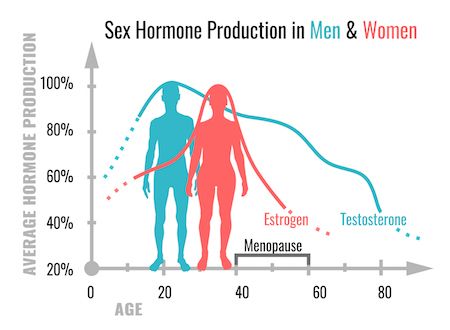When Does Your Singing Voice Mature?

One day, when attending a vocal workshop, the vocal coach lined everyone up and made us sing a short phrase. From this random group of young adults, she was then able to pick out the youngest and the oldest voices. This is because the human voice follows a typical pattern of maturity, which makes us sound different as we age. If you've ever wondered when your voice will fully mature, I had exactly the same question.
Your singing voice will mature between the ages of 18 and 21 years, when your larynx is fully grown. However, your larynx and voice will continue to develop throughout adulthood due to hormonal fluctuations, prolonging full maturity until your late 20's or 30's. Generally, deeper voices mature more slowly.
Below I will explore the key stages of development of the human voice, in both males and females, which will explain why your voice matures when it does.
When Does Your Singing Voice Mature?
Your singing voice will mature as your larynx reaches its maximum size and final position. This growth occurs during adolescence and finishes when your hormones become more stable. Despite variations during puberty, both males and females will develop a mature voice by the ages of 18-21.
Below is a graph that demonstrates the significant period of growth that occurs before the ages of 18-21, followed by a period of relative stability (up to around 30 years). It is this stability that makes the voice mature.

You may notice that there are then further fluctuations from around 25 years old throughout adulthood. This is the period of time where your voice develops further in its sound (even though it is technically mature).
It is these changes that make people confused about when the voice actually matures. I will explain this in more detail below.
Changes During Puberty
Puberty occurs between the ages of 8 and 13 years for girls, and approximately two years later for boys (between 10 and 15). This is a generalised estimate, and some people can begin puberty at a later stage.
For males, this change is quite dramatic, as you can see by the steep increase in testosterone before 18 years old. For females, the rise in estrogen is gradual.
For both males and females, the hormones responsible for this significant growth stabilize between 18 and 21 years old. It is during this time that your larynx reaches its adult size and position (it becomes larger and moves lower in puberty).
Your adult larynx is your mature voice.
However, you voice will continue to change throughout adulthood, which is why a 35 year-old will sound different to a 21 year-old. I will look at these fluctuations below.
Changes in Adulthood
Males
As you can see from the previous graph, men reach their peak in testosterone around 21 years old, but testosterone levels do not significantly decline until 50-60 years old. This allows for further development of their voice during this time.
In particular, men with deep booming voices (bass singers) will notice that their voice does not mature until 35-40 years old. Those with lighter voices, such as a tenor singer, will reach maturity closer to that 21-year mark.
Females
With females, there is a brief plateau in hormone variation around 18 years, continuing into their late-20's. This is the stabilization of hormones, where the voice is considered mature.
However, as you can see, there are considerable changes throughout adulthood that account for ongoing development of the female voice (changes in the sound). This is especially the case during menopause (around 40-50 years old), where a female's voice becomes deeper and may also become weaker due to a decline in estrogen.
In Summary
To put this information plainly, your voice will reach maturity around 18-21 years old. However, your voice will further develop during adulthood until 35-40 years old, depending on whether you have a higher or lower voice. After this point, you will notice
Keep in mind that the time spent training your voice can also affect its tone and strength. Regular vocal training is key to reaching your voice's full potential.
